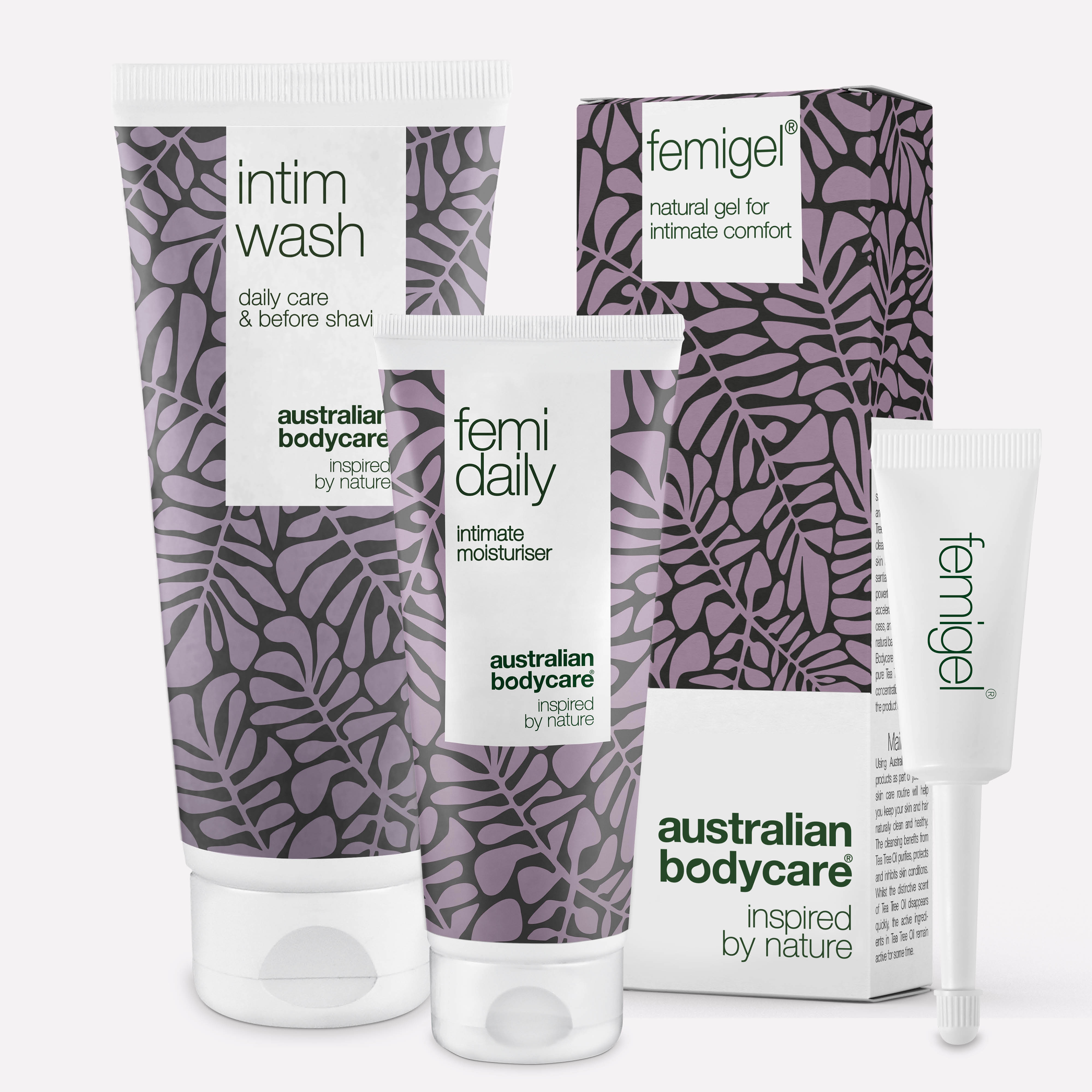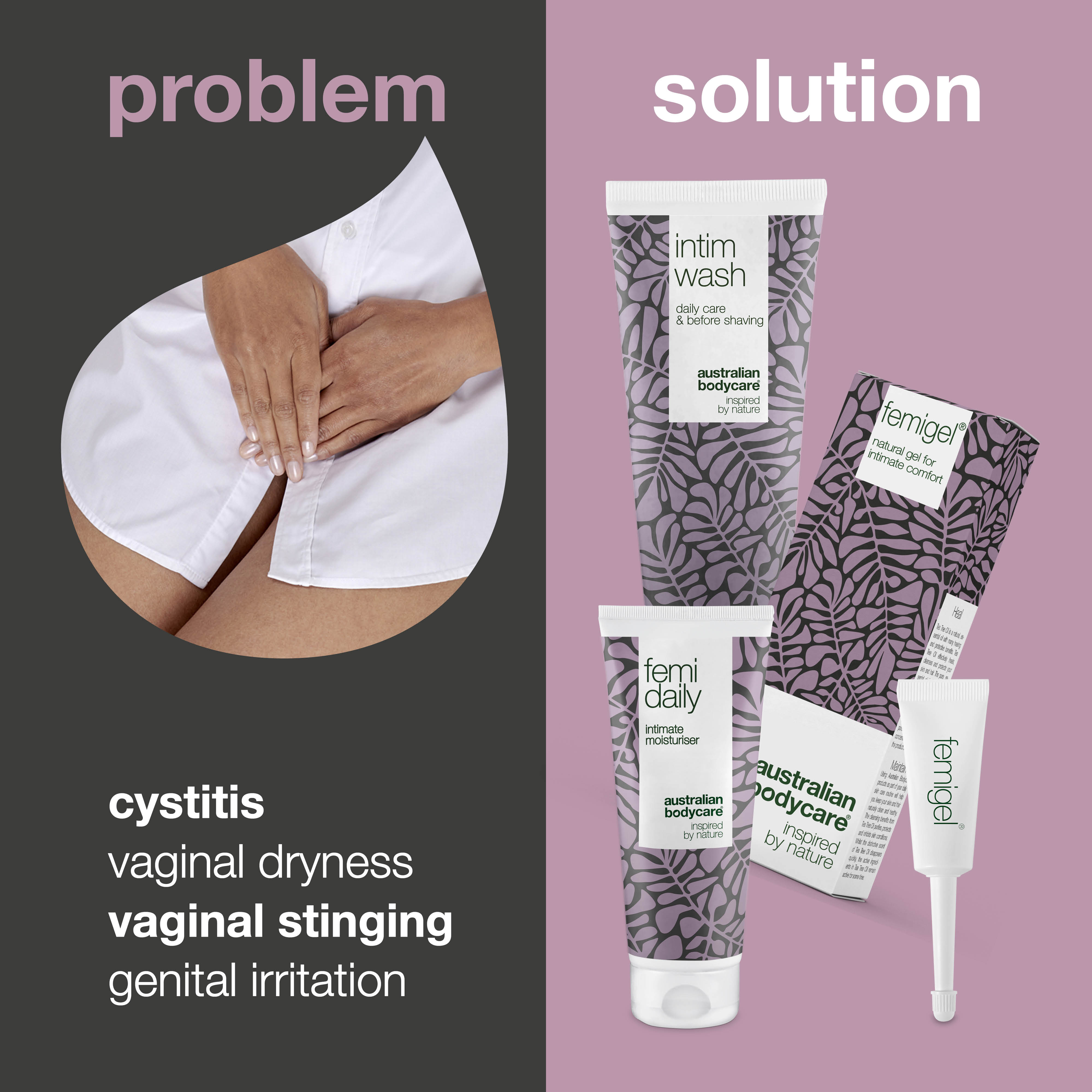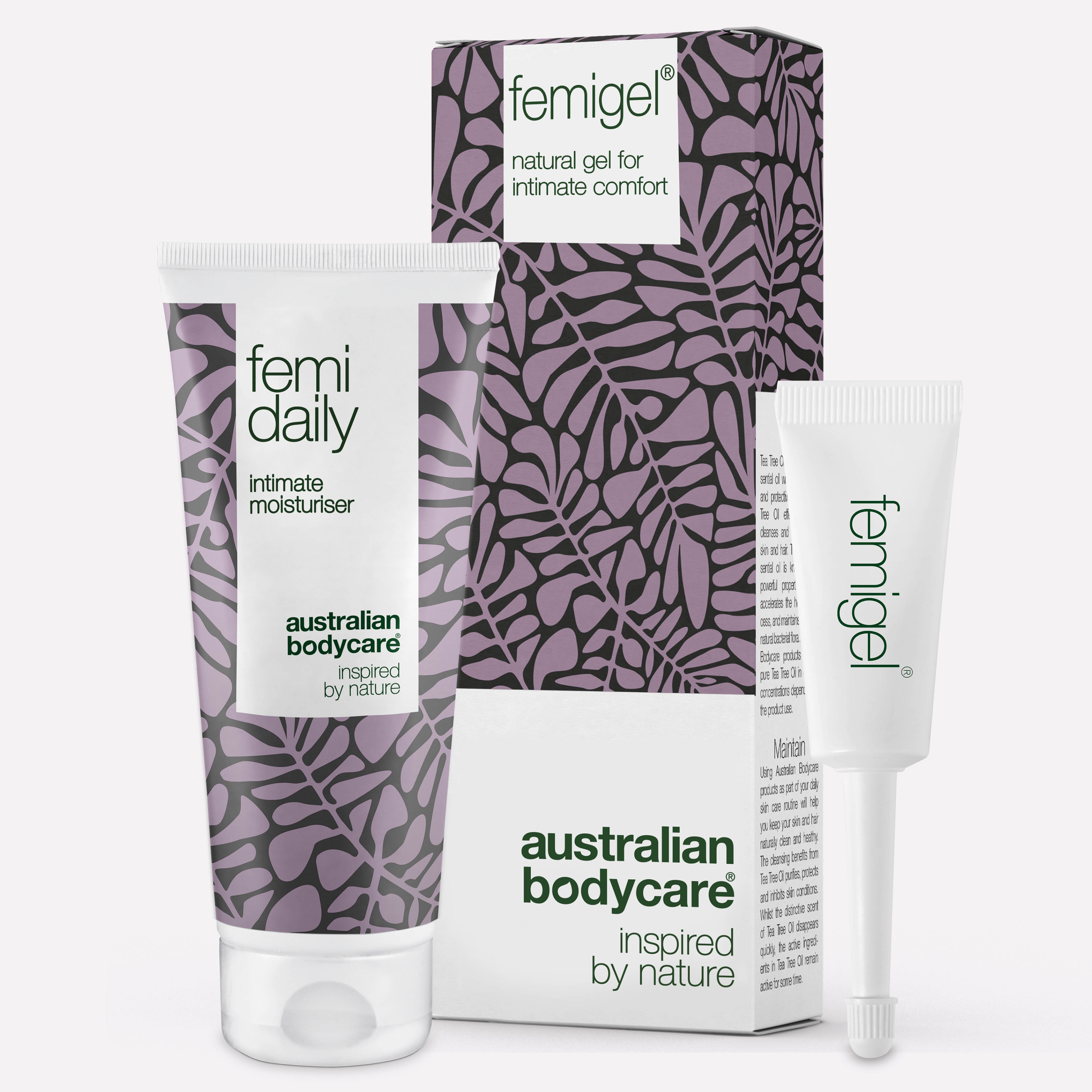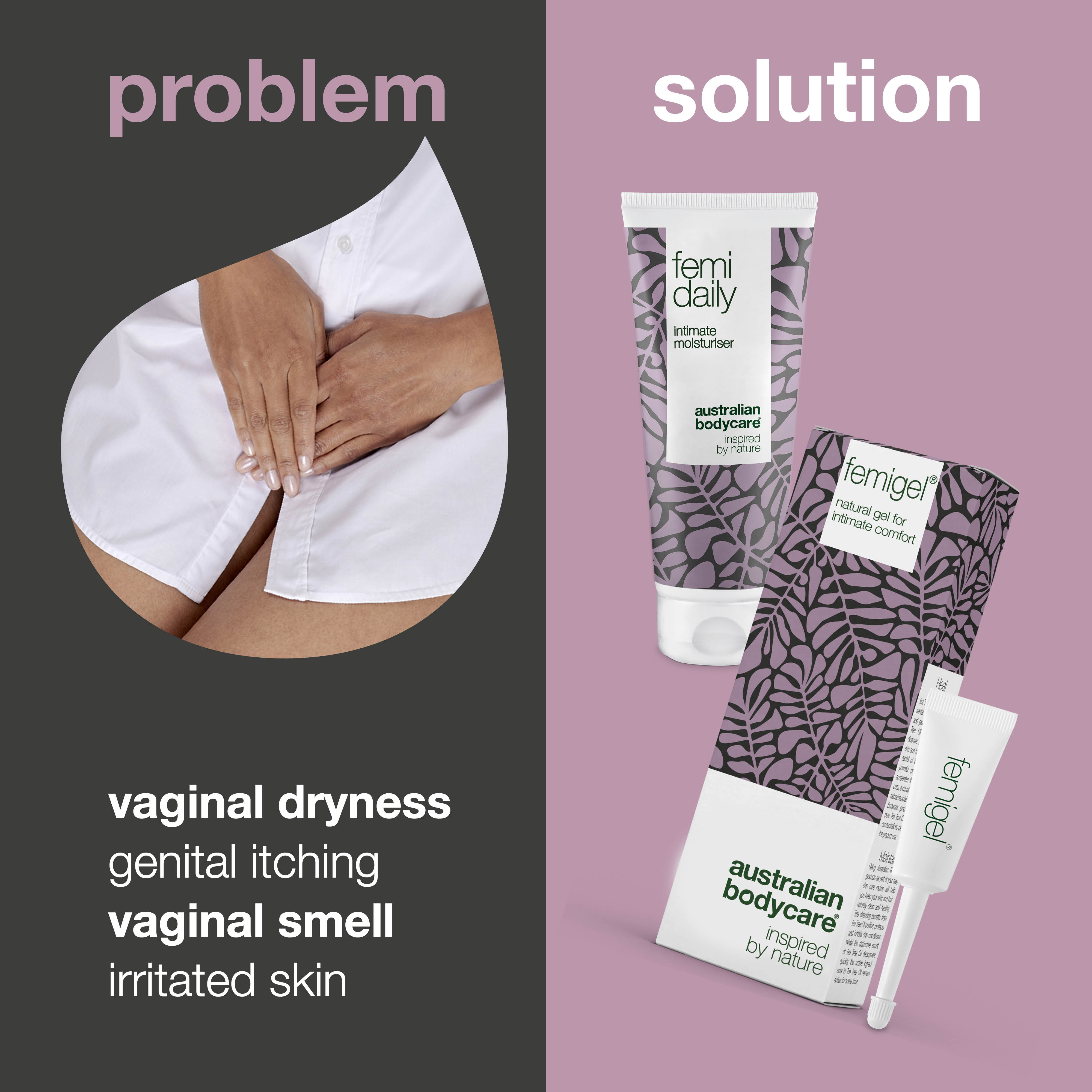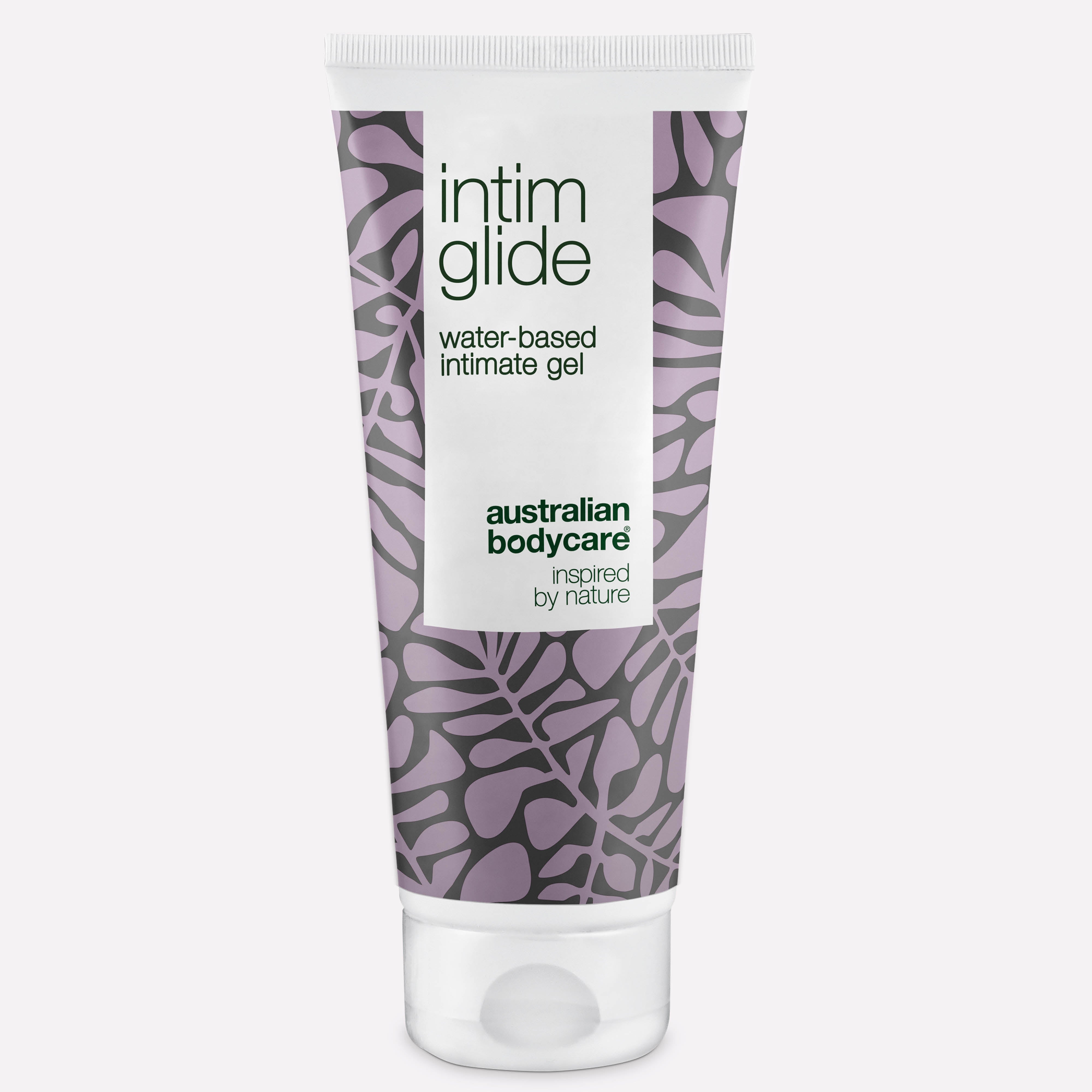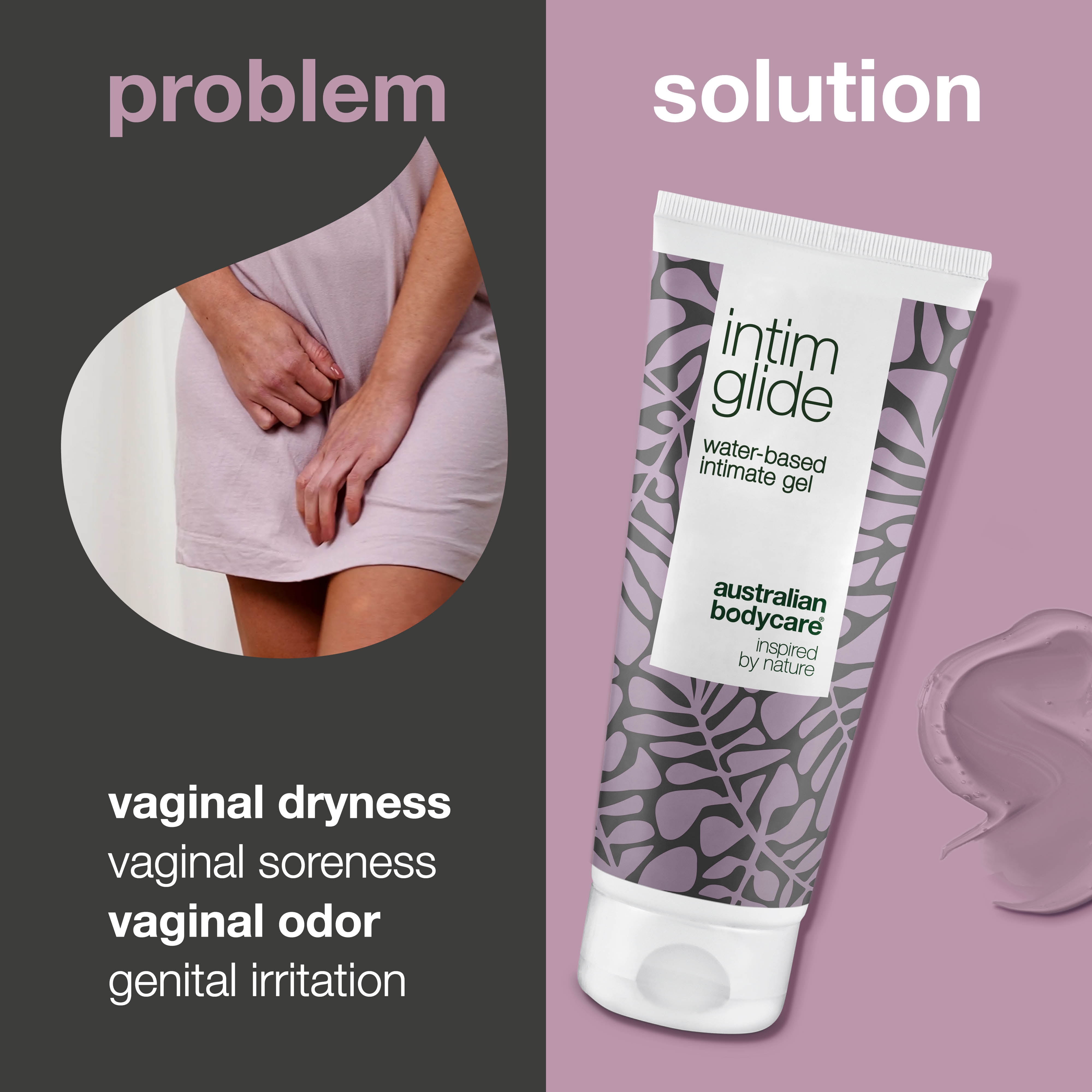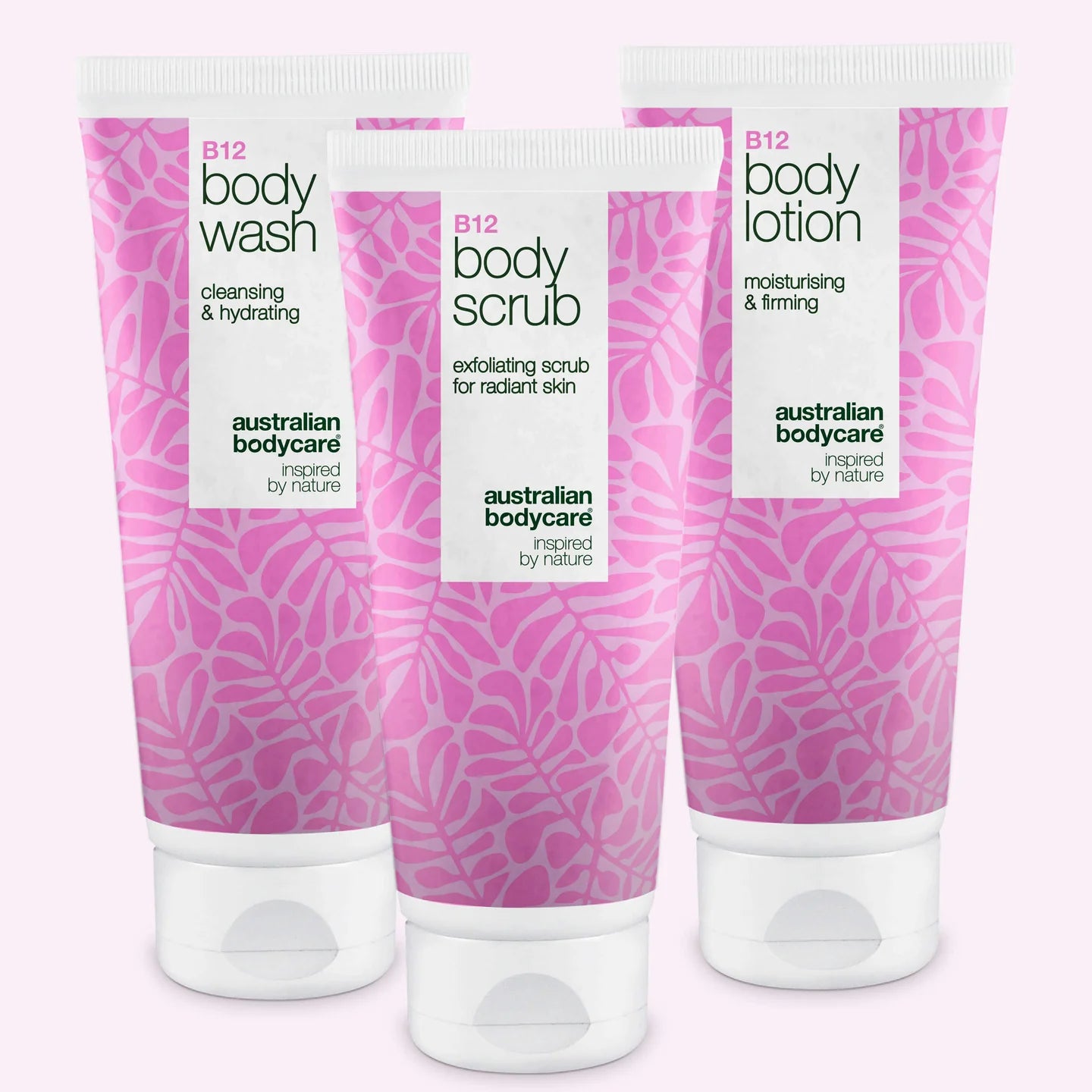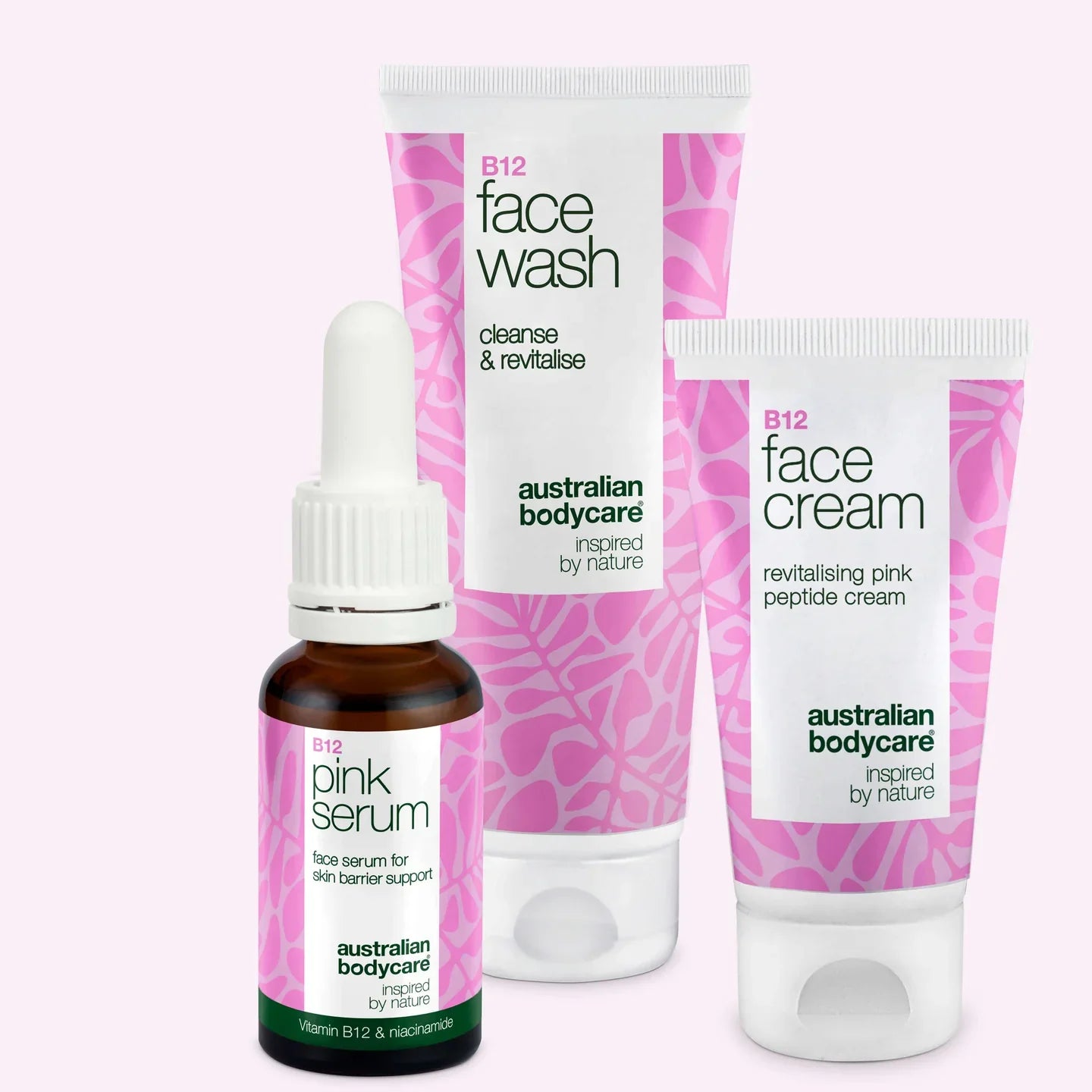Vaginal thrush – get answers to your questions about vaginal thrush
Vaginal thrush is a troublesome condition that most women will experience at some point in their lives.
Fortunately, there are good options for treating pelvic inflammatory disease - find out more here.
Table of contents
What is vaginal thrush?
Vaginal thrush is a very common, very uncomfortable, but fortunately also harmless condition. Vaginal thrush is caused by an infection with the yeast Candida Albicans. Yeasts live and thrive in warm and moist environments, including the lining of the vagina.
We all have yeasts naturally in our bodies and as long as they are not allowed to multiply more than normal, you will not notice them.
Jump straight to:
What does vaginal thrush look like?
Treating vaginal thrush
Preventing vaginal thrush
Products for intimate discomfort such as itch, irritation, dryness and odour
Who gets vaginal thrush?
Any woman, young or old, and whether or not she is sexually active, can experience vaginal yeast infections. It is rare for girls to get genital thrush before puberty.
Vaginal thrush is also known as genital thrush, vulvar thrush, yeast infection, vaginal fungus, crotch thrush and vaginal fungus. And it's something that the vast majority of women will experience at some point in their lives, either once or - unfortunately for some - repeatedly.
JUMP STRAIGHT TO: Treatment of vaginal thrush
Why do you get vaginal thrush?
When you get vaginal thrush, it is caused by an imbalance in the vagina. The natural environment of lactic acids and natural vaginal discharge is acidic (and has a low pH). If the balance is disturbed, the pH changes and this is when a yeast infection can occur. Some of the most common reasons why the natural balance in the vagina is disturbed are
- Medication, such as cortisone and immunosuppressants given, for example, during radiotherapy and chemotherapy.
- Hormonal changes during pregnancy, which can also affect the lining of the vagina.
- Sexual intercourse, which can affect the balance in the vagina, as semen has an alkaline pH, while the natural environment in the vagina is acidic.
- Diabetes, which causes an elevated level of sugar in the blood, will lead to increased sugar excretion through the urine, thus providing favourable conditions for fungal growth.
- Excessive hygiene (typically with perfumed products), which can risk upsetting the natural balance of the vagina.
- Wearing tight-fitting panties, perhaps made of synthetic material, which keep the intimate area moist and enclosed, thus providing favourable conditions for fungi to grow.
- Using panty liners, pads and tampons that make it difficult for the skin to breathe and keep the intimate area enclosed and moist.
Read more about: How can you treat vaginal itch?
Is vaginal thrush contagious?
Vaginal thrush is not the most contagious type of fungal infection, but vaginal thrush can be contagious. That's why you should always make sure you get a fungal infection treated. And you might as well start as soon as you notice the symptoms - so you can get rid of the discomfort sooner.
Women can infect their partners through sexual intercourse, and if your partner is showing symptoms of fungal infection, he should also seek treatment. However, the infection cannot go the other way round - a male partner cannot infect a woman with fungus.
Generally speaking, infection is not the most common cause of genital yeast infections, the outbreak is more likely to be due to the natural balance being upset for some reason.
Can you get vaginal thrush after sex?
If you experience problems with vaginal thrush after sexual intercourse, it may be worth thinking not only about treatment, but also about prevention in the future. You can often avoid problems with genital yeast infections by taking precautions.
Use a gel containing tea tree oil for intimate discomfort. Australian Bodycare has developed a gel with tea tree oil that is anti-bacterial and effective against itching, dryness and irritation during intimate discomfort.
Not all lubricants are effective against itching and irritation. And antifungal medicines should only be used for a limited time. Australian Bodycare Intimate Glide with tea tree oil can be used daily as it contains 100% natural actives - it is effective against intimate discomfort such as itching and irritation.
Symptoms: What does vaginal thrush look like?
Vaginal thrush is not something you should just ignore, as it is rarely something that goes away on its own. It can also be quite difficult to ignore a yeast infection in the genital area, as the symptoms are quite unpleasant. So, if you notice any signs of genital thrush, you should seek treatment so that you can get rid of the discomfort as soon as possible.
Here are some of the typical signs of genital thrush:
- A severe itching, irritation, burning and soreness, often accompanied by a reddish rash around the vaginal opening.
- A discharge that may be whitish and thick (and similar in consistency to cottage cheese). There is usually no odour from the vagina.
- Pain and discomfort during intercourse.
- Burning during urination.
These symptoms are some of the typical signs of vaginal thrush, but they can also have other causes. If you are experiencing these symptoms for the first time, it is a good idea to talk to your doctor about it, just in case.
How long does vaginal thrush last for?
If you choose to go straight to the pharmacy and buy an over-the-counter remedy, you should seek medical advice if the symptoms do not disappear completely within a few weeks. Usually, you should experience relief after a few days, or even within the first 24 hours.
You are not alone - three out of four women will get vaginal thrush at least once in their lives. The vast majority will have no doubt that something is wrong, as the symptoms are quite unpleasant. However, some women may have had genital thrush without realising it because they have not experienced any symptoms or discomfort, but this is a rare occurrence.
Treatment of vaginal thrush
Vaginal thrush needs to be treated - as soon as possible - because it very rarely goes away on its own. And there is no need to suffer from itching, irritation and other discomforts for a long time when it is a condition that can be treated with fairly simple remedies.
Go to the doctor or the pharmacy
If this is the first time you are experiencing signs of vaginal thrush, you can either go straight to the pharmacy and buy an over-the-counter anti-fungal product, such as Femigel from Australian Bodycare, or you can visit your doctor for a check-up. Your doctor will be able to quickly determine whether it's fungus that's causing your symptoms or something else. He or she can do this through a gynaecological examination and by taking a microscopy of your vaginal discharge.
If you choose to start with an over-the-counter remedy, there are different options. You can ask your pharmacist for more information. If you've had genital thrush before, you'll know the symptoms, and you'll know that it's just a matter of starting treatment as soon as possible.
However, if your symptoms are not completely gone after a few weeks, you should see your doctor (again), as you may need a different treatment.
Remedies for treating vaginal thrush and intimate discomfort
The treatment of vaginal thrush and intimate discomfort is about slowing down the growth of the fungus to restore the natural acidic balance in the vagina. And beyond that, it's about getting rid of the discomfort. You can do this with different remedies:
- Usually a cream will be applied directly to the area. There are various medical products that you can buy over the counter at the pharmacy. In addition, there are various products with natural active ingredients to counteract intimate discomfort. These include, for example, products containing tea tree oil, which is known to be effective against itching and skin irritation, and which can therefore be used with advantage in cases of intimate discomfort. For example, you can choose Femigel from Australian Bodycare. It is a gel that helps restore a healthy and natural balance to intimate discomfort and dryness of the external genitalia. Unlike traditional medicines, which can only be used for a limited period of time, products like Femigel, which contain 100% natural actives, can be used as part of daily care.
- Suppositories are available over the counter. Often your doctor or pharmacist will recommend a combination of suppositories and vaginal cream.
- You can get a tablet treatment with tablets to be swallowed. This is a prescription-only treatment that your doctor will usually only suggest if the cream or suppositories have not worked, or if you have recurrent vaginal yeast infections.
Are pregnant women more at risk of getting vaginal thrush?
Vaginal thrush is the most common genital infection and therefore it is something that most women will experience at some point. For many, it happens when they are pregnant and already have a lot of other problems to deal with.
The risk of developing genital yeast infections is actually three times higher during pregnancy than when you are not pregnant. This is due to the hormonal changes with increased hormone production during pregnancy. These changes also affect the lining of the vagina, which can provide a favourable environment for fungus to grow.
If you are pregnant and you develop genital thrush, you should make sure you get it treated. Otherwise, an untreated fungal infection can put you at risk of infecting the baby at birth, and in addition, an untreated fungal infection can also increase the risk of premature labour.
The treatment for genital fungus in pregnant women will typically be a localised treatment with a combination treatment, where you should both apply cream against vaginal thrush and use suppositories. However, it is always recommended that you contact your doctor for advice and guidance on pelvic inflammatory disease in pregnancy.
Preventing vaginal thrush
As we all know, prevention is always better than treatment - this is also true when it comes to genital thrush. So, while it is a treatable condition, it is certainly nicer to be rid of the annoying itching, irritation and other unpleasantness that comes with it.
Preventing vaginal thrush is basically about making sure not to disturb the natural balance in the vagina. If the natural (acidic) environment is maintained, you will be fine and avoid thrush. However, if you do something that upsets the balance, you are at risk of developing a troublesome yeast infection.
What can YOU do to prevent vaginal thrush?
If you have already experienced vaginal thrush, you will certainly want to do a lot to avoid intimate discomfort again. You can do this by, among other things:
- Avoid excessive hygiene. Of course you should wash your bottom, but use mainly water and, if necessary, supplement with an intimate soap made specifically for the vaginal environment. An intimate soap has the right pH value and does no harm. Avoid bath oils, bubble baths, etc. After bathing, you can use an intimate barrier cream that has a nourishing, softening and moisturising effect. An intimate cream is a cream specially formulated for use on the delicate skin in the intimate area. It is water-repellent and prevents the skin from drying out.
- Avoid panty liners. If you use panty liners on a daily basis, you should consider not using them - especially if you have problems with fungus. Panty liners make the environment in the vagina stuffy and moist, which is exactly the kind of environment that fungi thrive in. Pads and tampons can have the same effect, but can of course be difficult to avoid. Fortunately, they are typically used for a more limited period of time.
- Avoid tight-fitting panties, synthetic panties and tight trousers. Daily use of tight-fitting panties, synthetic panties and/or tight trousers keeps the vaginal environment more or less constantly moist and stuffy. If you have problems with vaginal mould, you may therefore consider switching to (looser) cotton panties and slightly looser trousers.
With a few simple rules of thumb, you can do a lot to prevent genital yeast infections yourself. If you find that itching and irritation occur during or after sex, try using a gel containing tea tree oil. Try Intimate Glide from Australian Bodycare, which is anti-bacterial and effective against itching and irritation and adds moisturisation.
FAQ about vaginal thrush
Can kids get vaginal thrush?
It is rare for little girls to get genital thrush, but it can happen - both in nappies and later in life. As in adults, symptoms typically include burning, itching, irritation and discharge. The thrush is treated with an anti-fungal cream. In addition, it is important to keep the area dry and clean, and it may also be a good idea to cut down on sugar intake.
Can thrush lead to fever?
Vaginal thrush is usually a harmless condition. However, in rare cases, it can be dangerous for people with a weakened immune system if the thrush spreads to the internal organs. Therefore, if you develop a fever associated with pelvic inflammatory disease, you should seek medical advice. However, it is not normal to have a fever associated with vaginal thrush.
What causes vaginal thrush?
Vaginal thrush is caused by an infection with the yeast Candida Albicans. Vaginal thrush occurs when the natural balance in the vagina is disturbed. This can happen during treatment for a medical condition, after sexual intercourse, during pregnancy, as a result of excessive hygiene, regular wearing of tight-fitting panties or panty liners, or as a result of diabetes.
Is vaginal thrush contagious?
Vaginal thrush can be contagious, so you should always seek treatment for a fungal infection. However, while women can infect men with fungus, the infection cannot go the other way round - men cannot infect women.
How long does thrush last in the genital area?
You will usually experience a relief of your symptoms a few days, or perhaps as early as 24 hours, after starting treatment for your genital yeast infection (cream and/or suppositories). If the symptoms are not completely gone after a few weeks, you should see a doctor.
Can vaginal thrush be dangerous?
Vaginal thrush is usually not dangerous, but it is a very bothersome condition and you should make sure you get it treated. Only in rare cases, in people with a severely weakened immune system, can it be dangerous if the fungus spreads to the internal organs.
Can vaginal thrush pass on its own?
Vaginal thrush can sometimes disappear on its own, but it will typically take quite some time, and there is no need to suffer for a long time when it is such a relatively easy condition to cure. If you wait too long to treat it, you may also run the risk that your genital yeast infection has worsened and will therefore take longer to treat; it may also require a longer course of tablets to get rid of the fungus.
Can vaginal thrush cause wounds?
You will not normally develop sores associated with genital yeast, but you may develop sores simply because the itching and burning is so intense that you scratch the skin. Small cracks in the skin are a common symptom of genital thrush. However, if you notice sores at the bottom, you should always seek medical advice, as it may be a more complicated type of genital thrush. There can also be various other causes for the sores, so you should always get them checked.
For further questions on this topic, we recommend that you contact your doctor.


